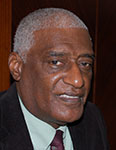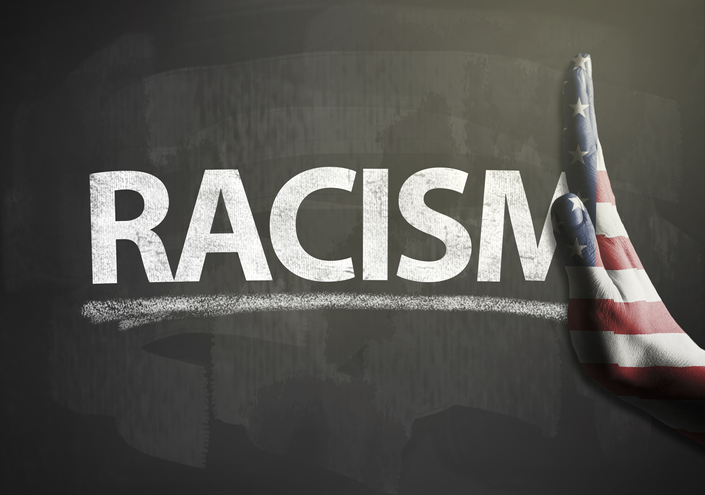The shooting of 13 people in Buffalo of whom ten perished by an avowed white supremacist was a tragedy waiting to happen. The fact that 11 of the 13 victims were Black was no mistake. The victims were targeted in a planned and calculated attack by a white supremacist radicalized into becoming a member of national racist and anti-Semitic hate groups. In other words, he was not a “lone wolf” killer. He is a part of a national movement that has been known to the FBI and the Department of Homeland Security for many years.
In June of 2021, the Biden administration alerted the nation about the rising threat of militias and white supremacists in an intelligence report delivered to Congress. The warning highlighted the growing problem of homegrown extremism in the United States. Though the Trump administration recognized the need to combat domestic terrorism, the former president was seen as being reluctant to denounce the violent extremism carried out by far-right nationalists and white supremacists. Which likely gave license for these groups to flourish — often in plain sight
The truth is that the Buffalo race-based violence was one of the several such warning signs of the rapid growth of violent white supremacy. Such incidents include mass shootings at Mother Emanuel AME Church, the El Paso Walmart, and the Tree of Life Synagogue— all occurred within the last five years and were driven by contrived philosophies such as White Replacement Theory. This conspiratorial set of beliefs claim that social changes in the United States (and worldwide) are connected to a plot by non-white elites to eradicate the white race. Supporters of the White Replacement movement believe that America is a white nation and should be led by white people.
White Replacement Theory is far-reaching and has gained currency among millions of Americans. In fact, the Buffalo shooter’s manifesto was taken verbatim from a manifesto of a White Replacement Theory adherent — who himself was a mass shooter who killed 51 people in two New Zealand mosques in 2019.
Political extremists have committed hundreds of murders
Over the past 10 years, the Anti-Defamation League has counted nearly 450 U.S. murders committed by political extremists Of these 450 killings, right-wing extremists committed about 75 percent. Islamic extremists were responsible for about 20 percent, and left-wing extremists were responsible for four percent.
We cannot discuss racial and religion driven hate violence without pointing out that the carnage of these acts is inextricably tied to the proliferation and easy access to assault rifles — and high-capacity ammunition magazines. It is important to note that the Buffalo gun violence represents the 198th mass shooting this year, and 15,833 people have died from gun violence in 2022. Reducing access to guns will not end race-driven hate. However, there needs to be a national imperative to prevent the high loss of life and severe bodily harm— not to mention the emotional impact to communities targeted by hate violence —that are the result of mass shootings.
Leadership is needed to end white supremacism
The nation must come to grips with the fact that there exists a national (even international) white supremist movement that is growing rapidly — and is thriving in social media. To that point, there are several key immediate steps that are essential to take to respond to this crisis, including:
- A need for conservative political leadership. The lack of which is a major obstacle in ridding America of white supremacy, which has plagued the nation since its inception. Unfortunately, conservatives in Congress and those at the State level have been either complicit in promoting hateful ideology, acquiesce to those who promulgate race-based conspiracy theories, or both.
- National and state-level leaders from all political persuasions must immediately and forcefully debunk harmful and bogus ideologies such as white Replacement Theory, and the unsubstantiated conspiracy-related mischaracterization of Critical Race Theory. They must also end the real and metaphorical spread of “burning books” that make school-aged children aware of America’s racist past.
- The White House and Congress must work with major private sector social media companies and experts to provide oversight and develop standards for content that is conveyed through all social media platforms.
The race-driven mass murders that occurred in Buffalo and other cities over the last five years are the tip of the iceberg of America’s white supremacy problem. Coupled with anti-democracy voter suppression legislation, overturning women’s rights to legal abortions, and attacks on transgender rights, white supremacy is an undeniable existential threat to the nation. It is without a doubt that we all have a responsibility to be vocal about our apprehension.
 Mel Wilson, LCSW, MBA, is the retired Senior Policy Advisor for the National Association of Social Workers. He continues to be active on a range social policy area including youth justice, immigration, criminal justice, and drug policy. He is a co-chairperson on the Justice Roundtable’s Drug Policy Reform Working Group.
Mel Wilson, LCSW, MBA, is the retired Senior Policy Advisor for the National Association of Social Workers. He continues to be active on a range social policy area including youth justice, immigration, criminal justice, and drug policy. He is a co-chairperson on the Justice Roundtable’s Drug Policy Reform Working Group.
Disclaimer: The National Association of Social Workers invites members to share their expertise and experiences through Member Voices. This blog was prepared by Mel Wilson in his personal capacity and does not necessarily reflect the view of the National Association of Social Workers.




